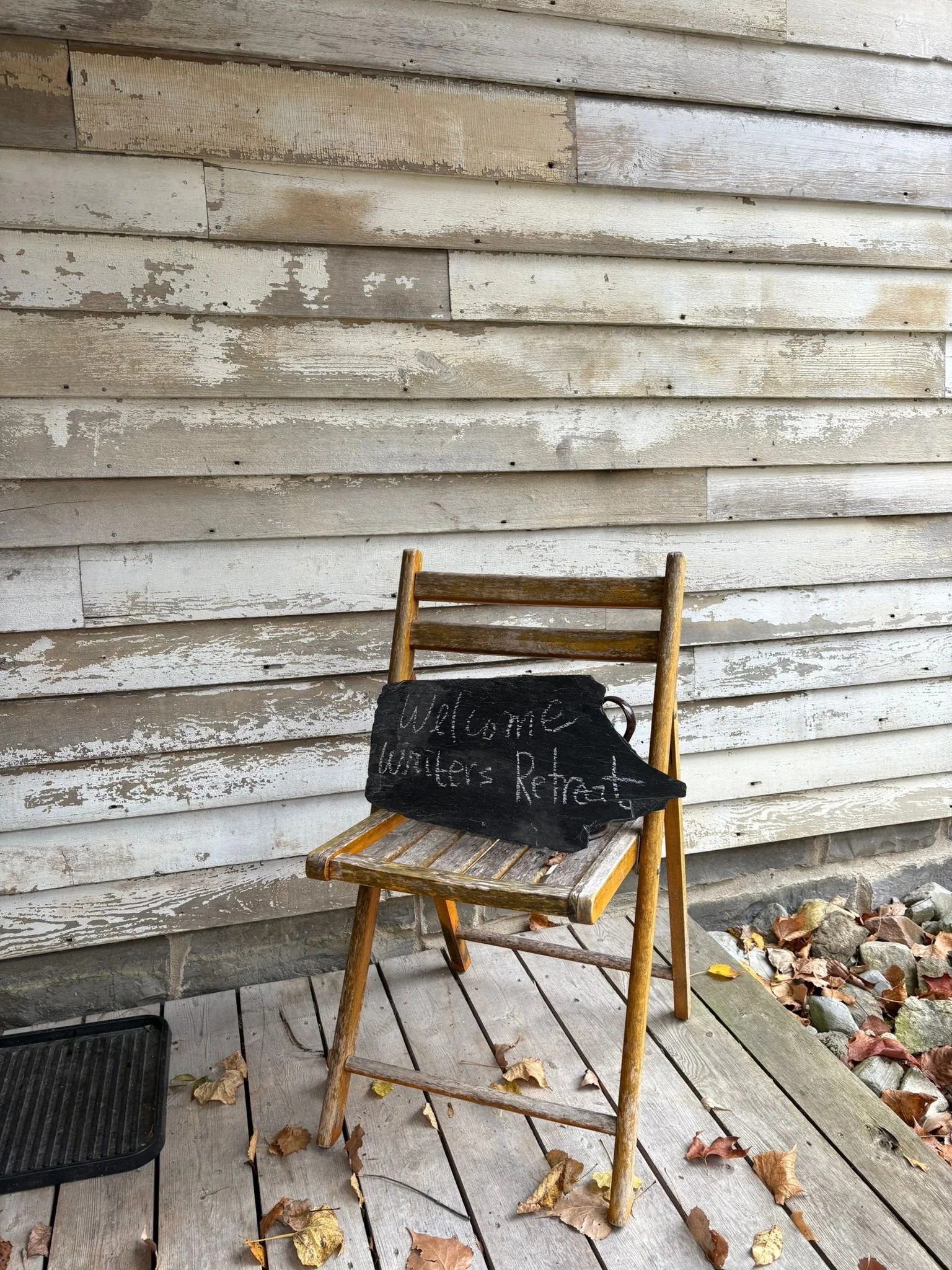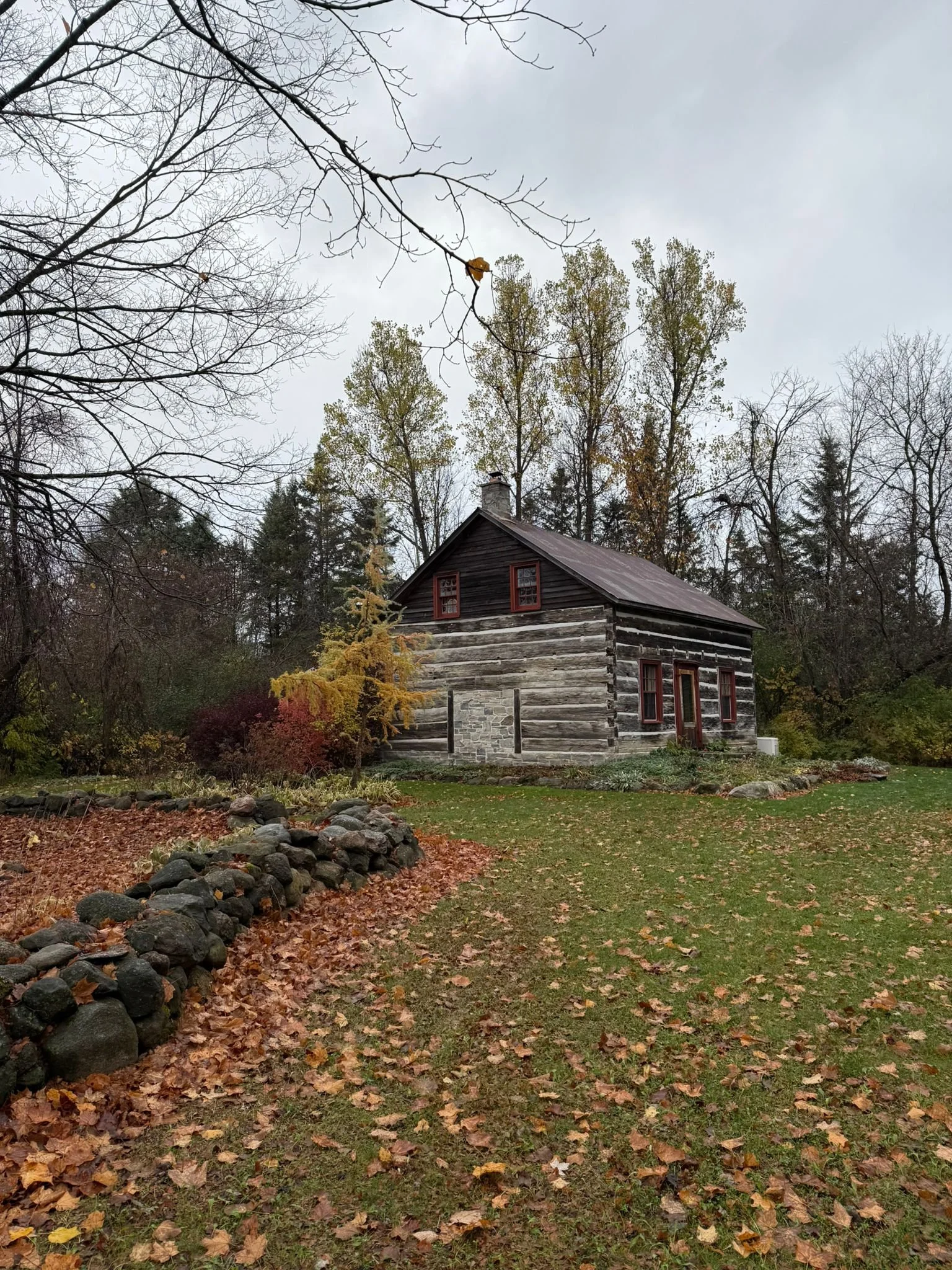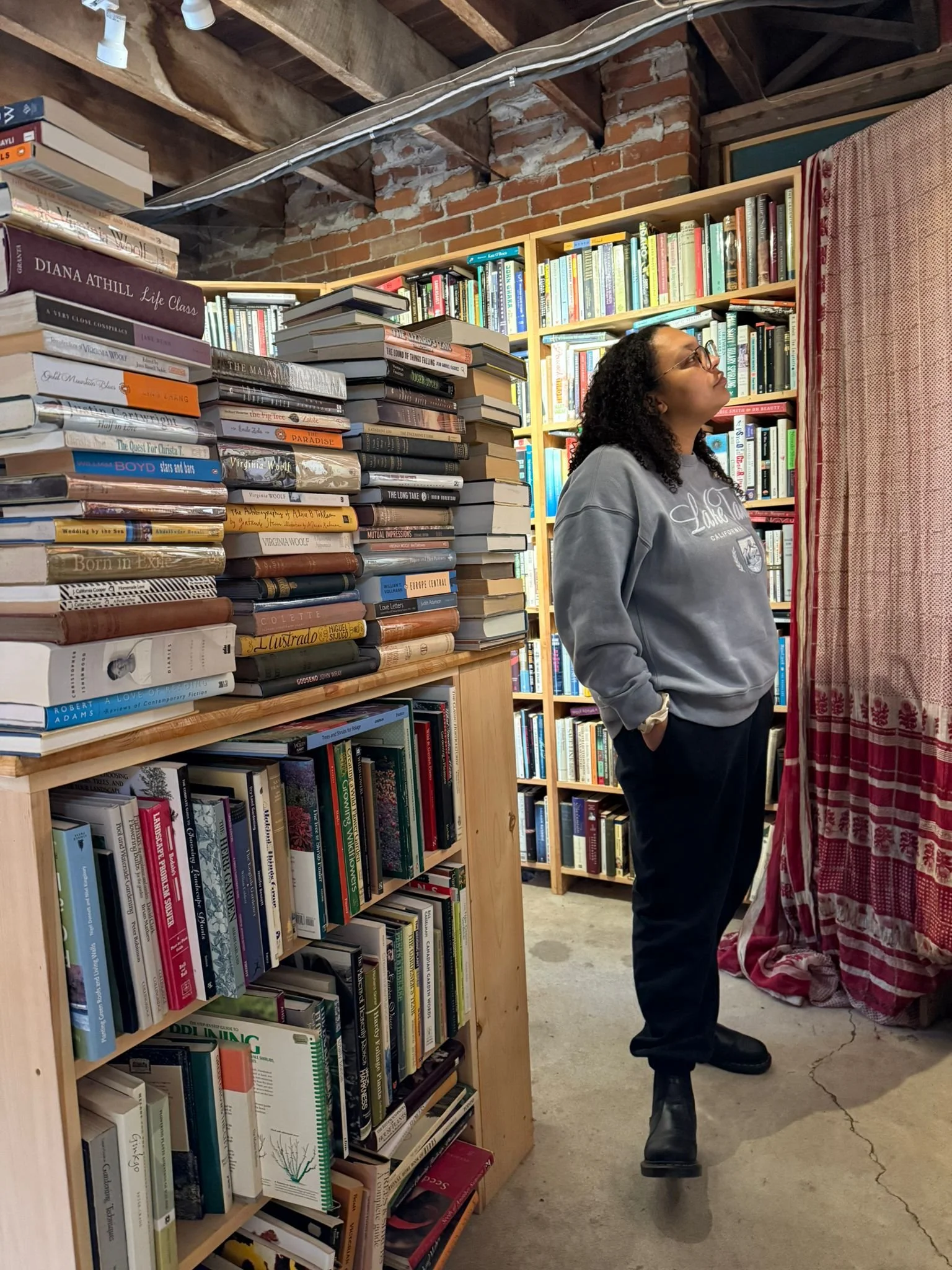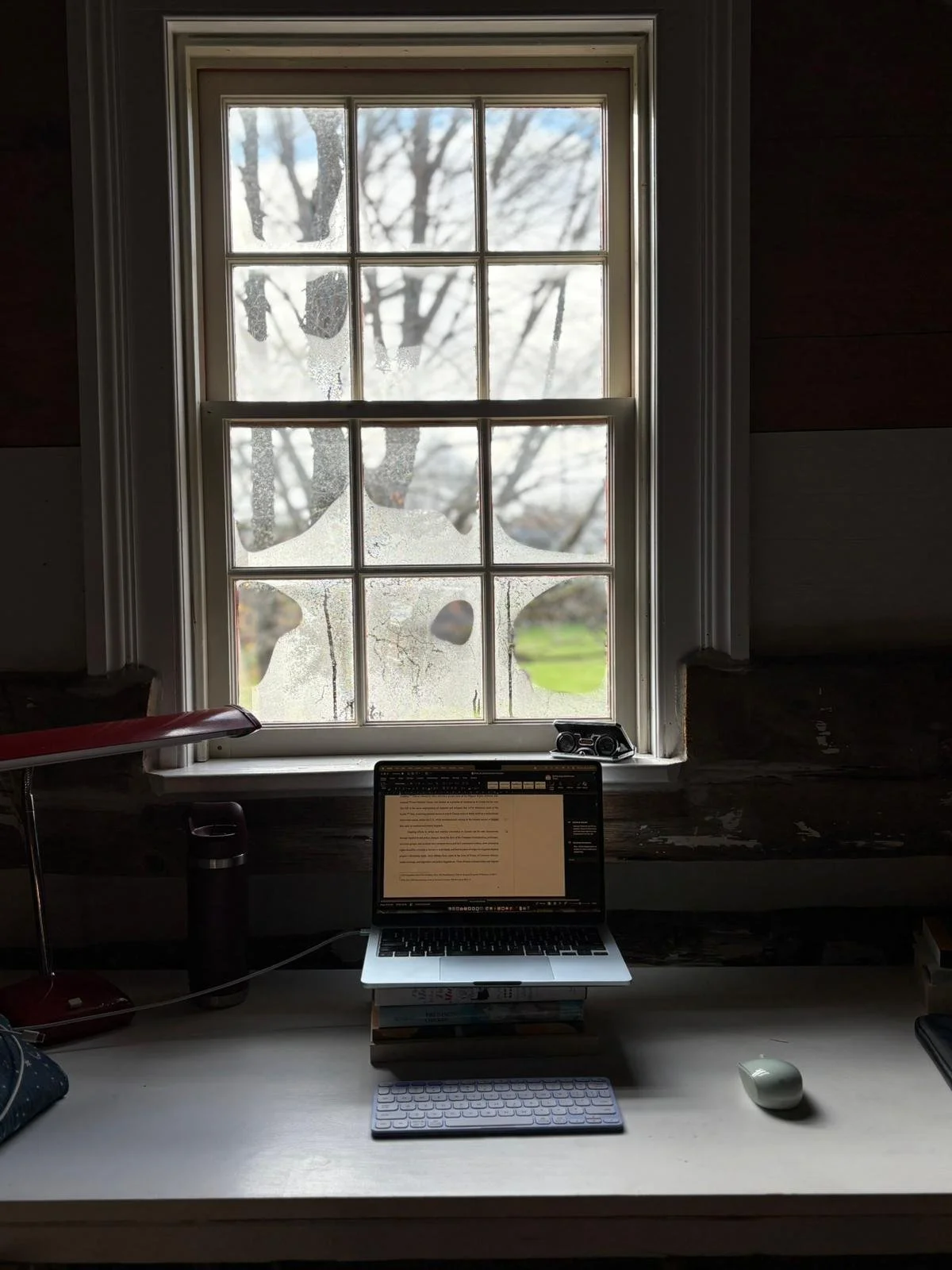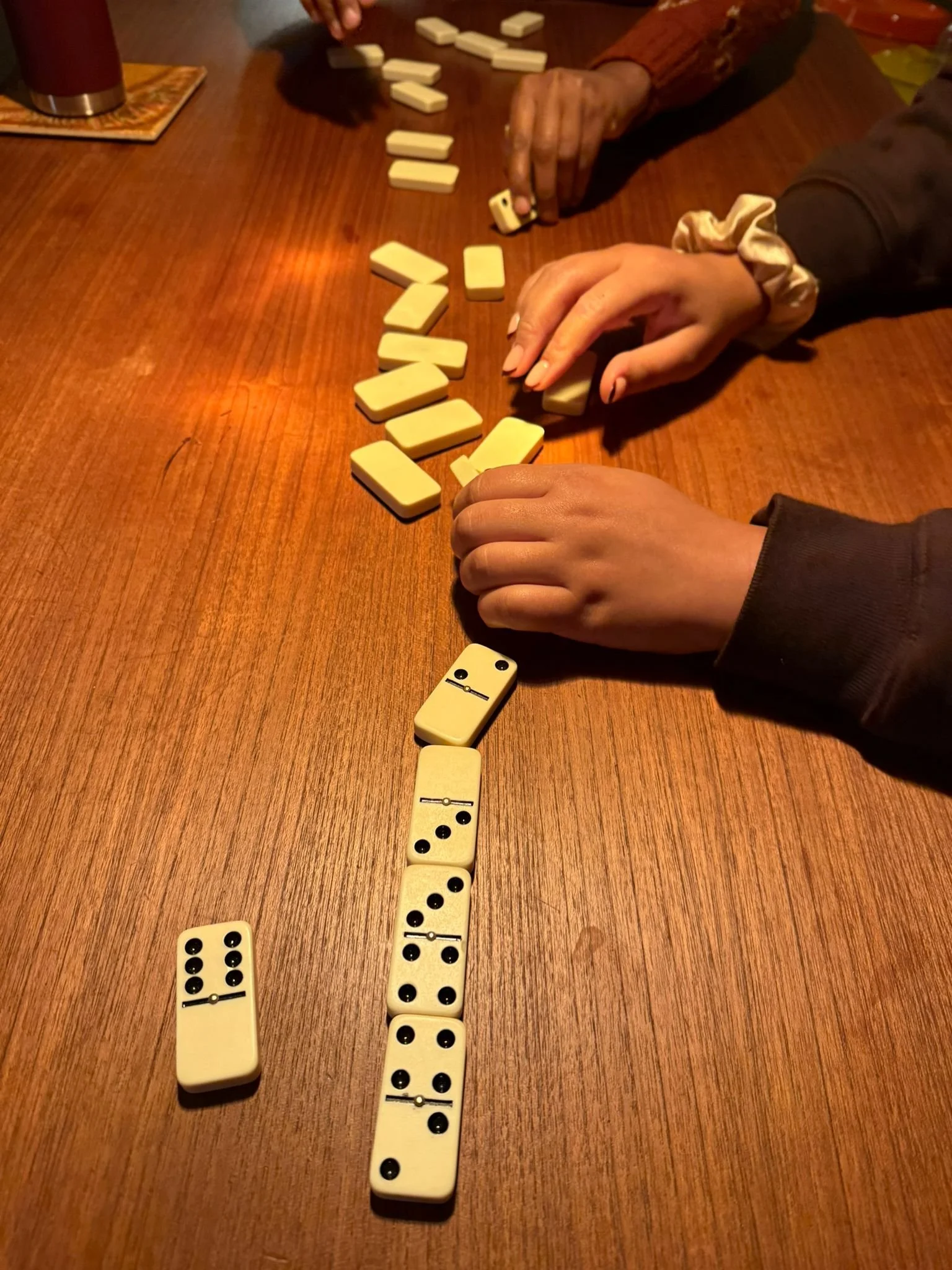CRJ Writing Retreat
During the week of October 21-25, members of the Collaborative for Racial Justice convened in a cabin located in the Greater Napanee region for the first CRJ writing retreat and workshop. During this retreat, junior scholars from three programs across York University convened to work on projects related to the topics of race, law, and culture. Writing projects included dissertation chapters and articles for publication.
At breakfast, we would gather in the kitchen and discuss our writing goals for the day. Our writing schedule was divided into two blocks:
9:00am – 9:30am: Goal Setting
9:30am – 12:30pm: Writing Block
12:30pm – 2:00pm: Lunch Break
2:00pm – 5:00pm: Writing Block
5:00pm – 5:30pm: Debrief
7:00pm: Dinner
After each writing session, we would reflect on our progress and provide feedback on each other’s work. Our schedule was flexible enough to accommodate shorter or longer periods of independent study.
Brianna was working on a chapter of her dissertation which examines the political rationalities of family reunification policies in Canada. The chapter reveals the ways in which a historical racialized ontology at the heart of the representation of the migrant and the “desirable family” animate contemporary legal, political and public discourses on family reunification.
Bahar was working on her dissertation project which explores the genealogy of citizenship in Canada. During the retreat, she worked on developing her methodology which brings together a genealogical method, alongside a relational method, and law and literature’s method of cultural analysis.
Sanjida split her time reading and writing on citizenship, illegality, and borders. Her article explores migration scholarship to consider how people are made into “citizens” and unmade into non-citizens/alien.
Marcelle-Anne was working on her dissertation chapter which explores the political and cultural history of museums in Canada which led to the Ontario Science Centre exhibit “A Question of Truth” which is at the heart of her dissertation project.
Patrick was working on revisions for his forthcoming Diacritics article, “Phobic Pessimism, Philic Feminism,” which tries to think how the imagined impasse between Black feminism and Afropessimism in Black critical theory refracts broader forms of gendered antiblackness.
The cabin was peaceful and offered an excellent space for focused writing. During our breaks we would take time away from our laptops and go for walks under the lush trees, or along the river path. One afternoon, we ventured into Tamworth (the neighboring town), stopping at the local bookstore and café for hot chocolate. Our excursions also led us to a local bakery whose tourtières and decadent pies kept us nourished throughout the retreat.
The writing retreat offered us an opportunity to connect with peers who are at different stages of their academic journey.

